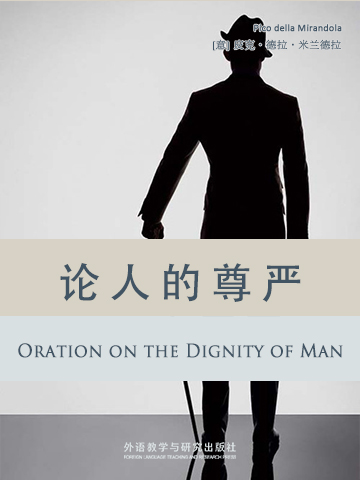被誉为“文艺复兴的宣言”,它将带你走入最早的人文主义精神世界。
This book represents the preface to the nine-hundred theses on the meaning of man in the world from the perspective of a 15th century prince, mystic, philosopher, alchemist. In this salubrious text we see Pico della Mirandola attempting to fuse the varied religious and philosophical traditions of Zoroaster, ancient Judaism, Plato, and Aristotle into a laudation of the creation of man by the Divine. This text is the founding statement of the "humanist" doctorine which argues that God gave Man "free will" which (if used virtuously) allows man to strive for dignity in the eyes of a beneficent God. This translation aptly conveys the passion and erudition of this great philosopher.
本书是皮克·德拉·米兰德拉在23岁时写就的一篇长篇讲演稿。是年,皮科就宗教、哲学、自然哲学等方面提出了900个论题,试图在罗马大会上进行讨论,最终,大会因教皇的反对而搁浅,但这篇为开幕式准备的演讲稿却声名远扬,被誉为“文艺复兴的宣言”。在这本小册子中,皮科赞颂人是自由的造物,能认识并能管理一切存在物。他提出,人的尊严来自于人的形象并未被先天地规定下来,而是可以通过道德自律、不断进取而实现自己的完善。皮科的论述无比深刻地体现了文艺复兴的精神底色:人文主义,对人的自然(natura)的确信,以及对不同学科、文化、哲学和宗教的开放态度。
The Oration on the Dignity of Man (De hominis dignitate) is a famous public discourse pronounced in 1486 by Pico della Mirandola, an Italian scholar and philosopher of the Renaissance. It has been called the "Manifesto of the Renaissance".
Pico, who belonged to the family that had long dwelt in the Castle of Mirandola, left his share of the ancestral principality to his two brothers to devote himself wholly to study. In his fourteenth year, he went to Bologna to study canon law and fit himself for the ecclesiastical career. Repelled by the purely positive science of law,[citation needed] he devoted himself to the study of philosophy and theology, and spent seven years wandering through the chief universities of Italy and France, studying Greek, Latin, Hebrew, Syriac, and Arabic.
- Oration on the Dignity of Man














20150120140451435740.jpg)






 京公网安备 11010802032529号
京公网安备 11010802032529号
笔记加载中...